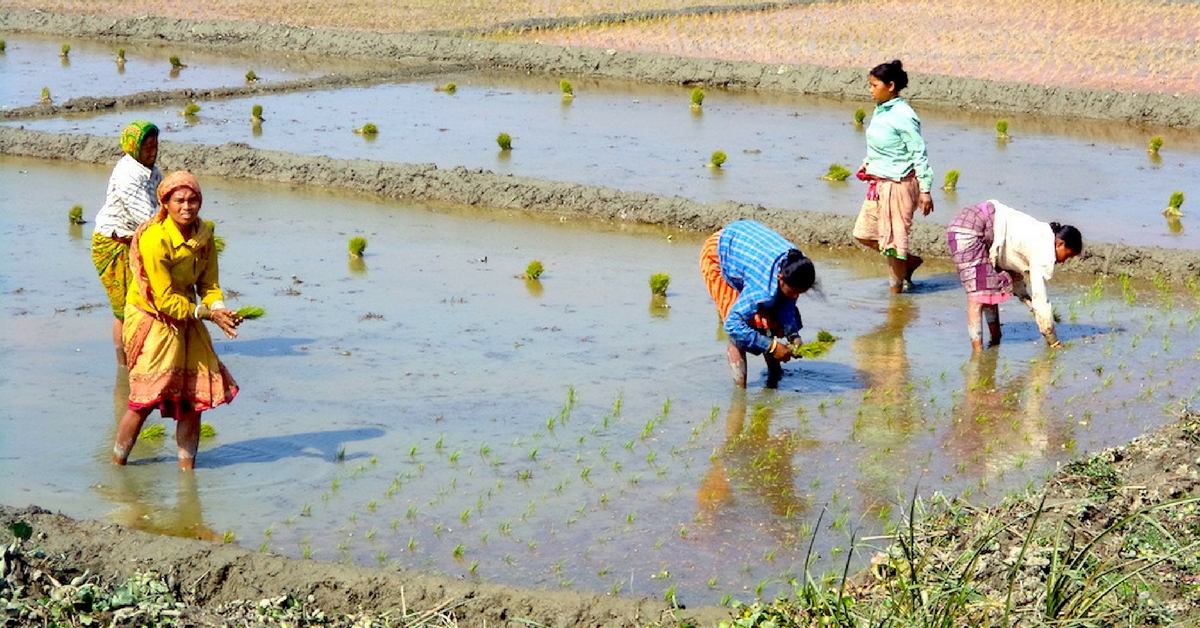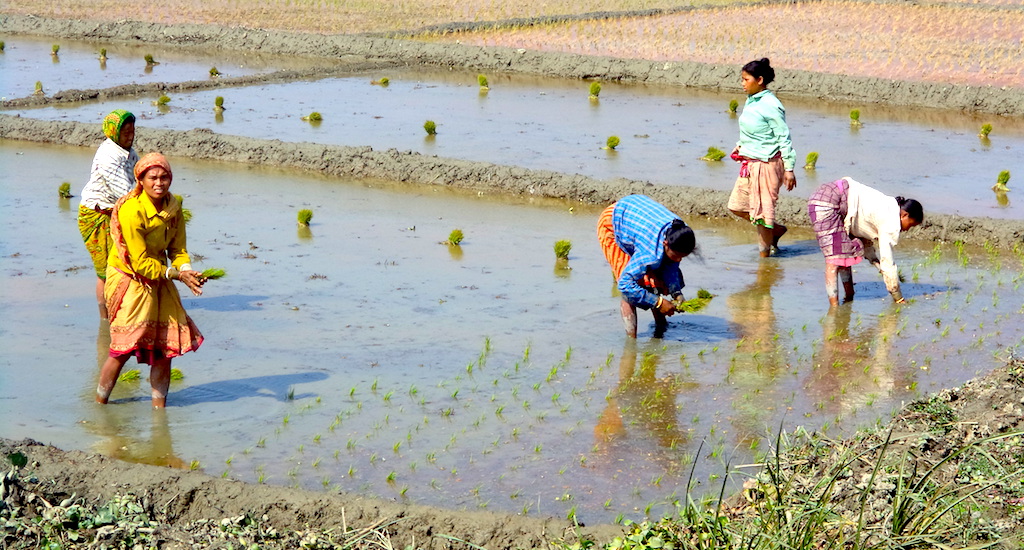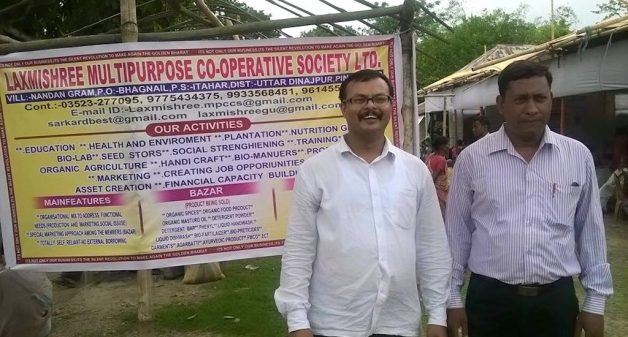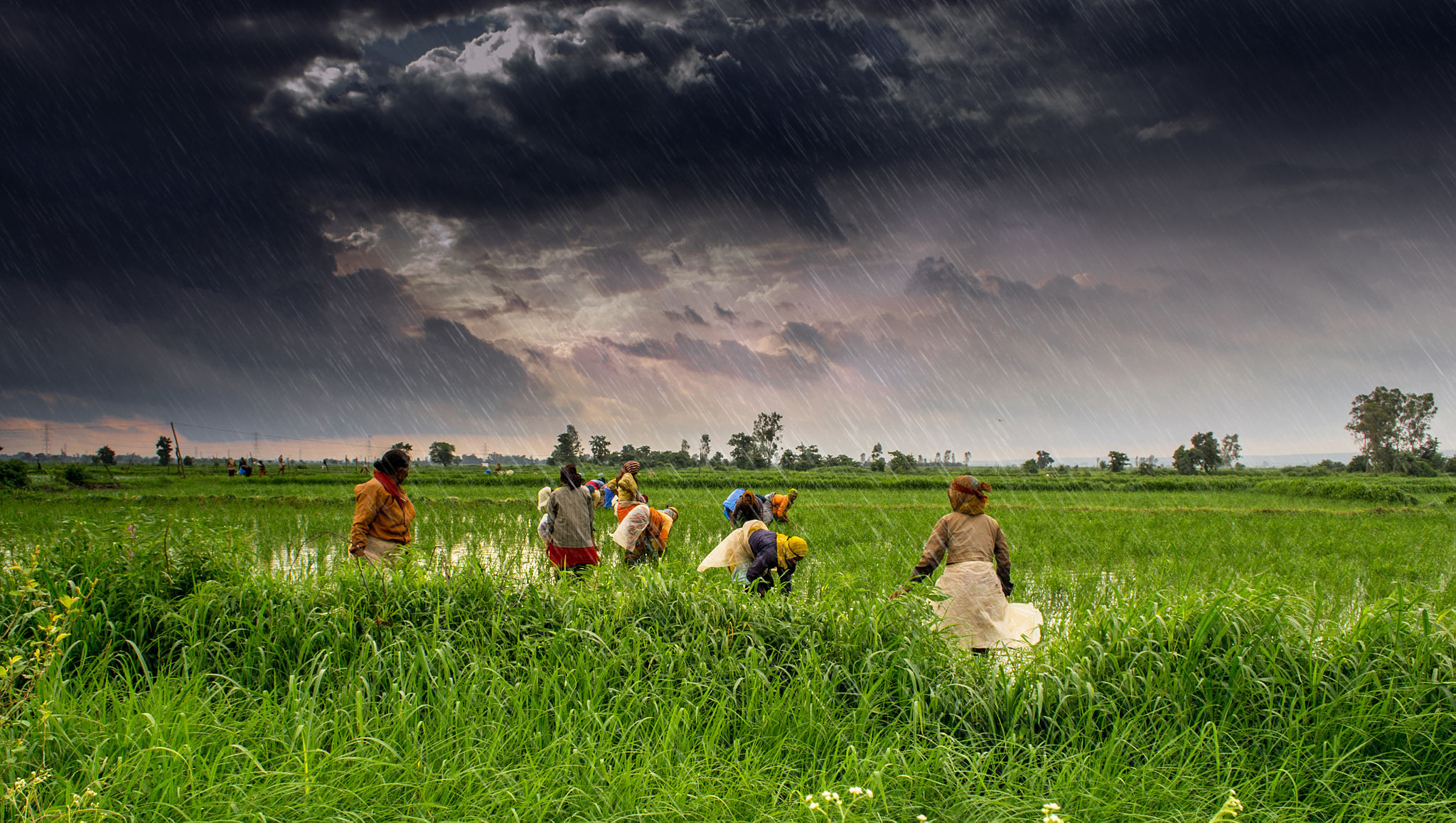TBI Blogs: How a Revolutionary Programme Transformed a West Bengal Village Through High-Quality Farm Produce
A Food and Agriculture Integrated Development Action programme implemented independently through a health, education, and employment centre has transformed Nandangram village in West Bengal by growing high-quality farm produce. Dhruba Dasgupta finds out more.

A Food and Agriculture Integrated Development Action programme implemented independently through a health, education, and employment centre has transformed Nandangram village in West Bengal by growing high-quality farm produce. Dhruba Dasgupta finds out more.
Socially just entrepreneurship, where agriculture can be a money earner instead of a losing proposition, has been a lifelong dream of Basudeb Sarkar. His dream finally materialized after he set up a Health, Education, and Employment (HEE) centre at Itahar administrative block in Uttar Dinajpur district of West Bengal with the help of FAIDA (Food and Agriculture Integrated Development Action) and its founders.
The conceptualization of FAIDA came to pass when farm scientist Raghuvansh Mani Pandey and farmer’s son Sukumar Sarkar put their thoughts together and realized that to reverse the current negative thinking regarding the worthlessness of agriculture and consequent farmer suicides, decentralized enterprise held the key.
Not everyone is capable of a lot of capital investment in agriculture, but that should not seal the person’s fate to be doomed. It was essential to have respect for the soil with a resolute will to bring back its fertility through scientific and consistent intervention, they reasoned. A restored soil led the key to a better future. Thus was born the institution FAIDA, run as a trust and having slowly found acceptance of its philosophy in 13 states of India after a decade of hard work.
The acreage covered under FAIDA’s agricultural methods should be close to 5,000 acres, Sukumar Sarkar says. The FAIDA states include West Bengal, Uttar Pradesh, Assam, Andhra Pradesh, Bihar, Chhattisgarh, Delhi, Jharkhand, Maharashtra, Madhya Pradesh, Manipur, Rajasthan, and Karnataka. The other countries where this initiative is being practiced are Bangladesh and Nepal.

Farm philosophy
FAIDA’s agricultural philosophy is to equip farmers with a fertilizer that restores the health of the soil and helps put in place an adulteration-free production practice that improves food quality and ultimately puts an end to the farmer’s dependence on external agricultural inputs to produce his own food.
The manure constitutes a combination of rock phosphate, gypsum, pyrite, lime, mustard dressings (khol), neem fruit dressings, and vermicompost, blended in a ratio that is decided according to the nature of the soil in that geographical region. This effectively neutralizes the havoc wrought by using DAP (di-ammonium phosphate) in the soil. Using this manure will lower the farmer’s production costs and increase his yield, and this practice should consistently be replicated.
To encourage the partial sourcing of manure from cows, FAIDA started the Nandalal Gaushala Project. Under this project, cows would provide both milk products, and contribute to the making of manure for chemical pesticide-free agriculture, and be used in a variety of other profitable uses. A village producer society would work with up to 25 milch cows, and not more than that. The project divides the profit accruing from the ownership of the cow in a 50:50 ratio between the owner and the producer.
Along with adulteration-free farm produce, the two other aspects that will enhance better rural living are Nivedita Rural Health Scheme and Sri Ramakrishna Education Scheme. To ensure the success of adulteration-free produce, one needs a further entrepreneurial element, which comes in the form of Maa Sarada Food Production and Distribution Project or Scheme to promote poison-free agriculture and agro-based activities in rural India.

Smart villages
As a counterpoint to the concept of Smart City, FAIDA speaks of the Smart Village, where gainful employment, education, and health are together taken care of by creation of HEE centres. Village residents with links with the city and a reasonable degree of organizing capability, as well as some land where they can practice adulteration-free agriculture, run these centres. FAIDA supplies farmers from its company Sanjeevani Biotech and markets their products at a premium price, which consumers pay for since they consume better-quality food.
The production and marketing take place through producer and consumer groups, where a producer group of 100 forms a producer society, and a consumer group forms a consumer society, and these two societies connect to facilitate agricultural entrepreneurship. Let us take an example and see how it works for Basudeb Sarkar’s initiative.
Basudeb of Nandangram village in Itahar has some 15 acres of land where he grows adulteration-free premium quality rice. He also coordinates with a network of producers who produce a basket of products. This includes a special rice native to Itahar (Tulai Panji), two types of lentils, tej patta, mustard oil, and jaggery. The jaggery is famous in Bengal as khejuri gur. He sells these products to the consumer group. This consists of higher-income people from cities and towns who source their food products from the producer group.
Basudeb, through his earlier efforts, had succeeded in getting together a low-cost coaching centre. Now, he is working on a medical center where one can treat simple diseases through telemedicine and low-cost medicine. Also, a Nagpur-based institute has trained two young village boys to make products from cow-dung and urine. This cottage industry will have to fructify as a part of Basudeb’s initiative, he told VillageSquare.in. For that, it needs some more time.

Initial support necessary
How did he manage to find the capital? “In the beginning, cross-subsidization is essential,” says Basudeb. “My veterinary food supplement and medicine businesses have put me in a position to be able to bear these costs. However, after the initial phase of support, the HEE centres will come of age.”
Earlier, Basudeb sold all products coming from his producer society’s stable under the brand Laxmishree Griha Udyog. However, today, he has applied for permission to run Laxmishree Multipurpose Co-operative Society Ltd. Under this umbrella, his initiative will stand up as a successful decentralized agricultural entrepreneurship model.
Basudeb says he uses his expanding shoe-making business to cross-subsidize his efforts to grow a Smart HEE centre. His emphasis is to specifically employ socially disadvantaged women and tribal women. “I came back to my village because I wanted to do something positive here. So far, I have had fruitful results,” he told VillageSquare.in.
FAIDA’s programmes have been expanding since its founding in the 2000. Establishing more HEE centres is possible by connecting this initiative to the nearly 2.2 million NGOs working in the country. There are also plans to have a HEE centre-on-wheels.
Sukumar Sarkar is aware of the possible ups and downs. “The success and applicability of this initiative depend on entrepreneurial orientation and the local issues,” he told VillageSquare.in.
“FAIDA’s biggest strength is its willingness to empower the farmers. We do not hold back technology and positive advice. India’s villages cannot just function with a one-size-fits-all approach. That is why we have started our initiative. If one is able to make ample use of it, one will surely taste success.”
(The author is a Kolkata-based writer.)
Adapted from an article originally published on VillageSquare.in. Subscribe to VillageSquare’s weekly update on the website for more stories from rural India.
Like this story? Or have something to share? Write to us: [email protected], or connect with us on Facebook and Twitter.
NEW: Click here to get positive news on WhatsApp!
If you found our stories insightful, informative, or even just enjoyable, we invite you to consider making a voluntary payment to support the work we do at The Better India. Your contribution helps us continue producing quality content that educates, inspires, and drives positive change.
Choose one of the payment options below for your contribution-
By paying for the stories you value, you directly contribute to sustaining our efforts focused on making a difference in the world. Together, let’s ensure that impactful stories continue to be told and shared, enriching lives and communities alike.
Thank you for your support. Here are some frequently asked questions you might find helpful to know why you are contributing?


This story made me
-
97
-
121
-
89
-
167











